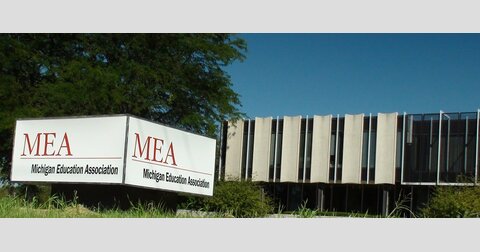Schools' Double Whammy: Declining Enrollment, Soaring Pension Expense
Decades of state pension underfunding may have cost each Holly teacher $8,450 last year
The state’s largest teachers union recently published a story about teachers titled, “The Disappearing Educator.” The item used selected anecdotes to paint a picture of decline, but failed to give the full context of the stories it told.
Those stories repeated the standard Michigan Education Association narrative of its members as victims of stagnant wages.
For this piece, the MEA focused on Holly Area Schools teacher Andrea Catalina. It discussed her stagnant salary, which meant she had no choice but to work a second job of waiting tables on weekends. The story claimed Catalina could make more money as a full-time waitress than a teacher – but didn’t disclose her actual school salary.
To fill in that gap, Michigan Capitol Confidential submitted a Freedom of Information Act request asking the Holly school district for salary and benefit information.
Holly Area Schools has endured declining enrollment for 14 consecutive years. In 2003, the district had 4,283 students. That number dropped to 3,280 in 2016, which meant a loss of 1,028 students over those 14 years, or 24 percent.
Because money follows the student under Michigan’s school finance system, lower enrollment means Holly has also endured stagnant or declining budgets during that time.
If the district had maintained its 2003 enrollment level, it would have an additional $7.7 million to spend on annual operations this school year. Holly currently receives $7,511 per pupil to cover its operations. That $7,511 per pupil is a mix of state and local dollars known as the "foundation allowance."
But the district was hit by a fiscal double whammy. At the same time enrollment was sliding, decades of underfunding by managers of the state-run school pension system caused the cost of teacher retirement benefits to soar.
For example, the district was required to contribute $2.06 million to the Michigan Public School Employees Retirement System (MPSERS) in 2011. Just four years later, the payment was $3.86 million, an 88 percent increase. Had pension expenses remained at 2011 levels, every one of Holly’s 213 teachers could have received an $8,450 bonus in 2016.
The backdrop for all of this is the state of Michigan’s own economic challenges. In the wake of the “lost decade” of the 2000s and the Great Recession of 2008-09, state public school funding went down for three consecutive years.
The downtrend reversed starting in the 2011-12 school year, and state funding has risen every year since. However, the increases have not quite kept up with inflation.
Holly’s per pupil funding in 2003 for just state funding was $6,138. In the current school year, it is $7,740. But factoring in inflation, it would take $8,006 in 2016 to match the $6,138 Holly had available in 2003.
Those figures refer to just state funding. Schools also get federal money, the flow of which can vary greatly from year to year. For example, in 2009, President Barack Obama’s stimulus spending program funneled billions of dollars to public schools. Holly got $3.6 million from Washington that year. By 2016, with the stimulus money spent long ago, Holly’s federal funding was down to $1.5 million.
Despite the challenges, the leaders of Holly Area Schools have balanced their budget every year. They did not spend more than the district takes in each year.
But this came at a cost: a freeze on teacher salaries during five years. There were no pay cuts. However, raises built into the union pay scale had been suspended.
Catalina is in her 12th year teaching at the district. Had the increases prescribed in a union contract not been suspended, she would have been making $73,513.
Instead, she earned $51,657 in 2015-16.
The district does offer a health plan to its teachers, and the plan doesn't require a premium contribution by the employees.
Catalina did not respond to an email seeking comment.
Michigan Capitol Confidential is the news source produced by the Mackinac Center for Public Policy. Michigan Capitol Confidential reports with a free-market news perspective.


 Michigan Senate passes bill to reallocate money used for state debt to other projects
Michigan Senate passes bill to reallocate money used for state debt to other projects
 Flint teachers skip school as student proficiency hits single digits
Flint teachers skip school as student proficiency hits single digits
 Michigan’s largest debt declines
Michigan’s largest debt declines